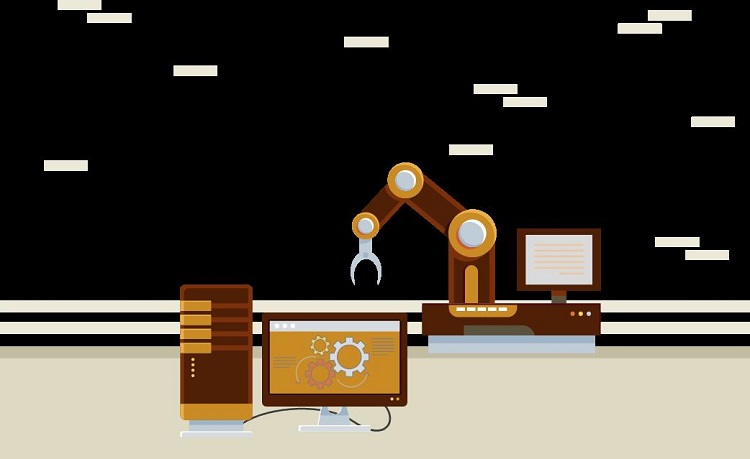Digital Interactive Services
Infosys BPM Podcast - Transforming the global business, Digitally
HOW DIGITAL TECH IS SET TO TRANSFORM BUSINESS OPERATIONS?
We are progressing through the New Normal, wherein global businesses are aiming to transform themselves with ground-breaking digital technologies to stay competitive, and thrive.
We conducted a podcast on digital transformation of business operations with the Head of Technology Solutions Group at Infosys BPM, Gopal D Kulkarni. We have curated the key points from the interaction below. Listen to the full podcast here.
HOW HAS THE ORGANIZATIONAL PERFORMANCE BEEN IN THE LAST FEW MONTHS WITH THE NEW NORMAL?
The performance delivered by functions and the overall organization during the pandemic has been significantly higher than last year. It’s a testimony to our resilience in adapting to the New Normal with improved productivity, commitment, and dedication. Technology has played a vital role in triggering agility in ensuring business continuity and resilience while enabling the human workforce to operate from home. At Infosys BPM, we had 97% of our digital BOTs seamlessly delivering services when BCP w as invoked.

WHICH DIGITAL TECHNOLOGIES WILL BE KEY TO TRANSFORM THE BUSINESS OPERATIONS OF TOMORROW?
Unlike the past, current and future business operations will require a rainbow of technologies, such as tactical automation, custom solutions, and intelligent process automation. These can be parked under the broad umbrella of business process automation.
Service providers need to scale up to be able to implement and integrate an array of technologies, depending on client preferences. While ERP/CRM upgrades will still be important for the back-office, new-age technologies like AI/ML will be key to enhance the end-user experience in consumer-facing operations.
Tactical automation and Business process management RPA will bring value to businesses in areas where ERP/CRM upgrades take longer, or where AI is expensive. While analytics has been key in the technology mix, intelligent analytics will not only affect how businesses consume insights but also drive transformation in many cases.
AS PREFERENCES OF END CUSTOMERS CHANGE, IS ORGANIZATIONAL FOCUS ALSO SHIFTING FROM PROCESS EFFICIENCY IMPROVEMENT TO PROVIDING SUPERIOR CUSTOMER EXPERIENCE?
The focus is indeed shifting beyond process efficiency to deliver business value through improved customer experience and operational resilience. The selection of technology will vary on various factors, including strategic priority and preferences of client businesses. The near future will increasingly focus on Intelligent Process Automation and integrated technology solutions, such as these:
- Enterprises are looking at digital technologies like Intelligent Virtual Agents (IVA) from a next-gen contact centre perspective.
- Intelligent document processing is in demand to enable fast processing of invoices, delivering a superior experience, and driving on-time payment metrics.
- The use of data, statistical algorithms, and machine learning techniques are enabling fraud analytics with near real-time monitoring of transactions.
- Machine learning algorithms are helping companies classify procurement spend into appropriate categories and sub-categories.
- Virtual assistants are helping improve sales and fulfilment channels.

HOW SHOULD AN ORGANIZATION APPROACH THE IMPLEMENTATION OF RPA WITHIN THEIR BUSINESS PROCESSES?
The automation implementation at an organizational level should be considered as a strategic, well-thought-through initiative. Automation is a large “change management program,” akin to running a race. Like in a marathon, endurance tactics are essential to managing such a complex program and execution. The entire automation implementation life-cycle (discovery, solution design, delivery, support, and maintenance) will require seamless execution with the right control measures at every stage; compliance to regulations and standards; and most importantly, synergies between teams, as in the case of a relay race.
WHAT ARE SOME OF THE CRITICAL FACTORS IN SETTING UP A SUCCESSFUL AUTOMATION PROGRAM?
At Infosys BPM we look at automation as a key ingredient for human-ware service delivery. There are a few critical success factors for every automation program. They are as follow...
- A well-defined scope: Enterprise-wide, with upfront multi-year commitment.
- Client sponsorship: With clear targets and accountability defined in scorecards cascaded from a program sponsor to the execution team.
- Functional alignment: IT, business, domain, risk, legal, and finance must be aligned and work together towards the common objectives of an automation program.
- Change management: A strategic change management program with an aspirational target for extreme automation.
- Multi-tier governance: Rigor to track the progress and remove roadblocks with a multi-tier governance model.
- Vision and expertise: Process vision and involvement of the domain/subject matter experts while selecting the right use cases for automation.
- Flexible cloud infrastructure: Scaling of operations would be efficient and easy with a cloud infrastructure.
- Flexible commercial framework: Incentivizing extreme automation is essential to ensure benefits for both clients and service providers.
- Automation nerve center: Setting up an automation nerve center for efficient and effective BOT operations management.
- Standardization and harmonization: Automate amenable processes post simplification/standardization/harmonisation. Ensure not to automate waste – that will amplify waste.

WHAT IS HUMAN-WARE AND HOW IT AFFECTS THE AUTOMATION OF BUSINESS PROCESSES?
The BPM industry is currently leveraging technology to reimagine its role as the co-creator of business value and improved customer experience for the clients. The BPM industry in the New Normal stands on the principles of human-ware, wherein human capabilities are engaged more in innovation and enhancement, while the repetitive work is automated with the help of machines or software.
At Infosys BPM, we define human-ware service delivery as the best of people capabilities blended with the best of technology to deliver services, co-create business value, and enhance the customer experience.
AT ONE END IS HUMAN-WARE AND THEN THERE IS EXTREME AUTOMATION. IS IT POSSIBLE TO ELIMINATE HUMAN EFFORT FROM BUSINESS PROCESSES OR SPECIFIC STEPS?
There are many business processes with standard input and output, such as month-end reconciliations and order creation, which are completely rule-based and can be automated entirely. With the rise of intelligent automation, the possibility of extreme automation leading to exponential efficiency improvement has gone up significantly. The extent of automation possibility has become a function of the technical capability of service providers and customers’ willingness/ability to spend.
But there are functions where it is advisable to retain the human effort, even if the automation possibility of a process is high, to retain the empathy in delivering customer experience. This is especially applicable in customer helpdesks, where a customer would instantly feel relaxed knowing they are being helped by a human being.
COULD YOU BACK THAT UP WITH A RECENT AUTOMATION PROJECT TO ELABORATE ON THE SUCCESS FACTORS MENTIONED ABOVE?
Let me give you a tale of two organizations – one in health-tech, the other in manufacturing. Both the engagements have similar processes, ERPs, and ways of functioning. Both were equally excited when we presented them with an automation roadmap.
However, only one of them embarked on an automation journey with a holistic vision driven by the critical success factors I mentioned earlier. The other took only a tactical approach towards automation. The difference in benefits delivered by automation in these two engagements is stark and speaks volumes about the relevance of automation driven by a vision at the enterprise level as a large change management program. Read the externally published comparative story of the two organizations here.
WHAT WOULD BE YOUR RECOMMENDATION FOR ORGANIZATIONS PLANNING FOR DIGITAL TRANSFORMATION?
My three key takeaways from large automation programs implemented at Infosys BPM are:
- Drive Organizational change management in collaboration with the client, service provider, and automation platform partner.
- Integrate human-ware capability with automation.
- Amplify human potential and augment business value, as automation is not a substitute for human-ware
An aspirational goal with a digital mind-set and human-ware approach, rather than pure automation, will be the future of large automation programs that can drive substantial value for organizations.




